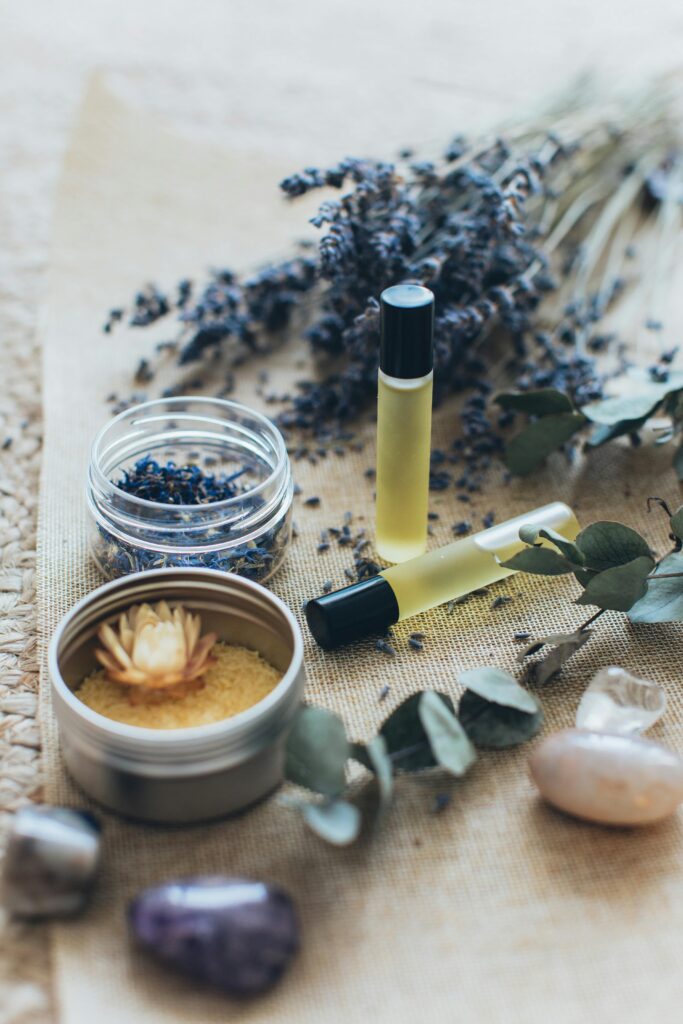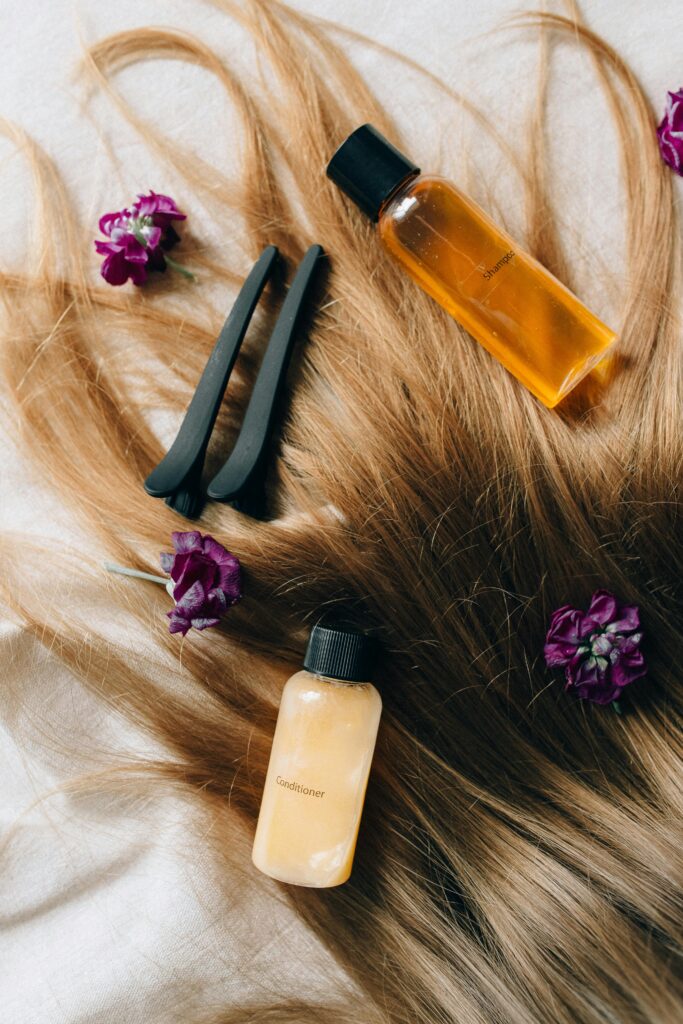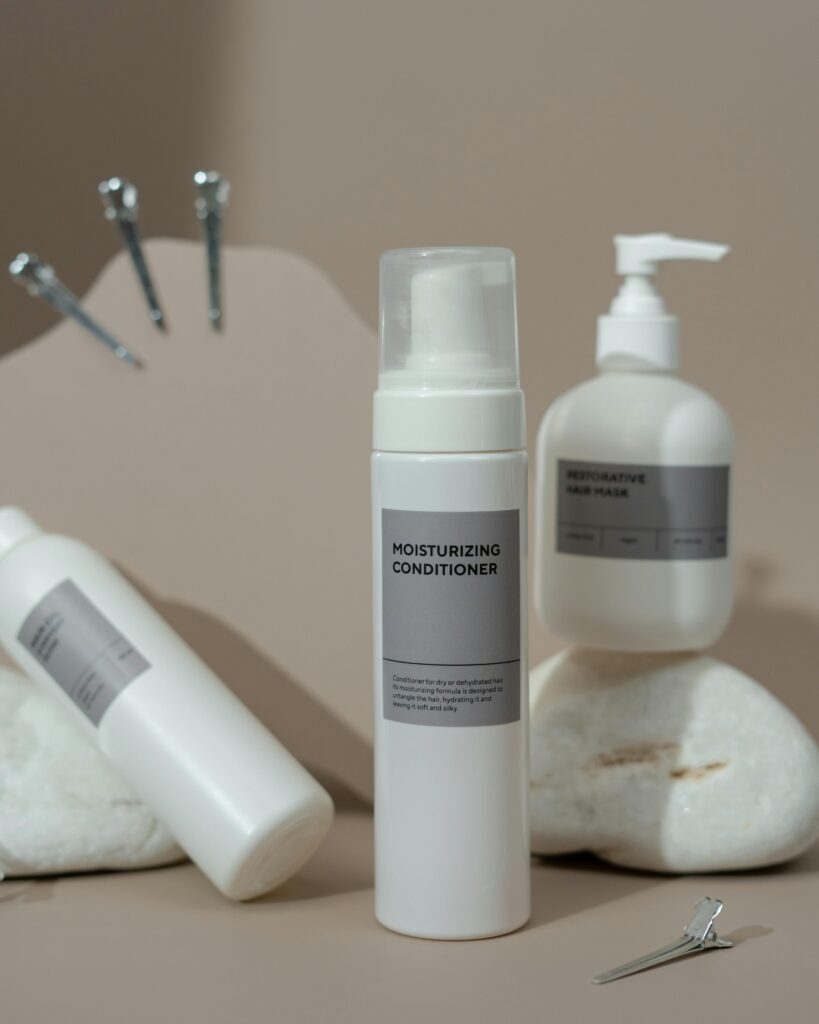Dry hair is a common concern for many individuals, leading to frustration and a lack of confidence in how their hair looks and feels. It occurs when your hair lacks sufficient moisture, causing it to become brittle, frizzy, and prone to breakage. Factors such as environmental conditions, excessive heat styling, chemical treatments, and even genetics can contribute to dry hair. Fortunately, with the right hair care routine, you can restore moisture, improve texture, and regain the health of your hair.
This article will explore the causes of dry hair, provide effective tips for treating and managing dry hair, and suggest the best products to incorporate into your routine. Let’s dive into how you can effectively care for dry hair to keep it soft, smooth, and hydrated.

Causes of Dry Hair
Dry hair occurs when the hair’s natural oils are stripped away, preventing moisture from being locked in. There are several common causes of dry hair, including:
- Environmental Factors: Exposure to the sun, cold weather, and low humidity can strip moisture from your hair. These environmental factors can make your hair feel dry, frizzy, and rough.
- Overwashing: Washing your hair too frequently can lead to the removal of natural oils, leaving hair dry and lacking moisture. While shampooing is important for removing dirt and oil, overuse can damage your scalp and hair.
- Heat Styling: The frequent use of heat styling tools such as blow dryers, curling irons, and straighteners can strip hair of moisture. The high temperatures from these tools can cause damage to the hair cuticle and make hair dry and brittle.
- Chemical Treatments: Chemical treatments like coloring, perming, or relaxing hair can make your hair dry. These processes break down the hair’s natural structure, causing moisture loss and leading to dry, lifeless strands.
- Health Issues: Certain health conditions, such as hypothyroidism or malnutrition, can impact the health of your hair. If you’re dealing with chronic dry hair despite following a good hair care regimen, it’s important to consult a doctor to rule out underlying issues.

Tips for Dry Hair Care
With the right approach, you can significantly improve the condition of your dry hair. Here are some essential tips to help you manage and restore hydration to your strands:
1. Hydrate and Nourish with Deep Conditioning Treatments
Deep conditioning treatments are a lifesaver for dry hair. They provide intense moisture, helping to replenish and repair hair from the inside out. Look for deep conditioners that are formulated with nourishing ingredients like:
- Argan oil: Packed with antioxidants and essential fatty acids, argan oil helps to hydrate and soften dry hair.
- Coconut oil: Known for its ability to penetrate the hair shaft, coconut oil helps to retain moisture and reduce protein loss.
- Shea butter: This rich, emollient ingredient seals moisture into the hair and prevents further dehydration.
Use a deep conditioning treatment once a week, or more frequently if your hair is especially dry. Apply the product generously to damp hair and leave it on for at least 20 minutes before rinsing it out.
2. Switch to a Moisturizing Shampoo and Conditioner
If you’re dealing with dry hair, the type of shampoo and conditioner you use is crucial. Choose products that are specially designed for dry or damaged hair. Look for moisturizing, sulfate-free formulas that will cleanse without stripping away natural oils.
Sulfates are harsh detergents found in many shampoos, which can strip the scalp and hair of their natural oils. For dry hair, sulfate-free shampoos are gentler and retain moisture, keeping your strands hydrated. Additionally, conditioners with ingredients like glycerin, aloe vera, and proteins (like keratin) can help restore moisture and strengthen hair.
3. Avoid Over-Washing Your Hair
Washing your hair too often can exacerbate dryness. Shampooing every day removes the natural oils your scalp produces to protect and nourish the hair. Instead, aim to wash your hair no more than two or three times per week. Between washes, you can use a dry shampoo to keep your hair looking fresh without stripping it of its natural oils.
4. Use Leave-In Conditioners and Serums
Leave-in conditioners and serums are excellent for keeping your hair moisturized throughout the day. These products help to hydrate hair and provide extra protection against environmental stressors. Apply a leave-in conditioner or serum to damp hair to lock in moisture and prevent frizz.
Look for products with ingredients like:
- Silicone: Helps to smooth the hair cuticle and prevent moisture loss.
- Panthenol: A form of vitamin B5 that helps to retain moisture and give hair a healthy shine.
- Cucumber extract: Hydrates the hair and scalp, keeping the hair soft and smooth.

5. Limit Heat Styling
Excessive heat styling is one of the leading causes of dry hair. If possible, minimize your use of hot tools like flat irons, curling irons, and blow dryers. Whenever you use heat styling tools, be sure to apply a heat protectant spray or serum to protect your hair from damage.
If you can’t avoid styling tools, try to lower the temperature setting. High heat can cause more damage, so use the lowest effective temperature to achieve the style you want.
6. Protect Your Hair from the Elements
The weather plays a significant role in the health of your hair. Wind, rain, and harsh sunlight can all contribute to dryness. During the colder months, wrap your hair in a scarf or wear a hat to protect it from the elements. In the summer, try to limit direct sun exposure, or use hair products that contain UV filters to prevent sun damage.
7. Trim Your Hair Regularly
Split ends and damaged hair are common issues with dry hair. Regular trims help eliminate split ends and maintain the overall health and appearance of your hair. Even if you’re trying to grow your hair out, trimming the ends every 6–8 weeks can make a significant difference in preventing further damage and dryness.
8. Incorporate a Healthy Diet
Your hair’s health is closely related to your overall health. A well-balanced diet rich in vitamins and minerals can significantly improve the condition of your hair. For dry hair, focus on foods that are high in:
- Omega-3 fatty acids: Found in fish, flaxseeds, and walnuts, omega-3s help to nourish the scalp and promote healthy hair growth.
- Vitamin E: Present in almonds, spinach, and avocados, vitamin E is an antioxidant that supports scalp circulation and hair hydration.
- Biotin: Found in eggs, nuts, and legumes, biotin strengthens hair and improves its texture.

Best Products for Dry Hair
- Moroccanoil Treatment: This iconic product contains argan oil and helps to restore moisture, add shine, and reduce frizz.
- Olaplex No. 3 Hair Perfector: Olaplex is designed to rebuild the internal structure of damaged hair, making it a great choice for those with severely dry, brittle strands.
- SheaMoisture Raw Shea Butter Deep Treatment Masque: Ideal for dry, damaged hair, this product uses shea butter, argan oil, and sea kelp to provide intense moisture.
- Living Proof No Frizz Leave-In Conditioner: This leave-in treatment smooths hair, reduces frizz, and provides moisture, making it perfect for dry hair.
Conclusion
Caring for dry hair requires patience, dedication, and the right products. By adopting a hair care routine that includes deep conditioning, moisturizing treatments, and minimizing damage from environmental factors and heat, you can restore hydration and shine to your hair. With the right care, dry hair can become soft, smooth, and more manageable, boosting your confidence and helping you feel your best every day.
If your hair remains dry despite following these tips, it may be worth consulting a dermatologist or hair care professional to ensure there are no underlying health issues. Dry hair doesn’t have to be permanent – with the right treatment, you can bring it back to life and enjoy healthy, hydrated locks once again.
